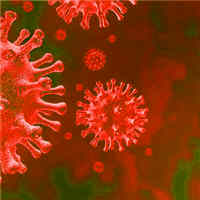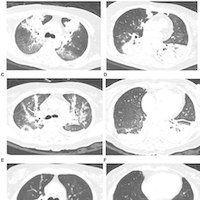A Rare of Case of COVID-19-Related Pericardial Effusion and Cardiac Tamponade
emra.org
Acute pericarditis involves inflammation of the pericardial sac, which is made of an inner mesothelial visceral layer that surrounds the heart.
Normally, this layer produces ~50 mL of fluid to lubricate the heart and prevent excess motion. The inflammation associated with pericarditis can lead to excess fluid production and the development of an effusion which can ultimately cause hemodynamic instability.
Whether an effusion leads to cardiac tamponade is determined by both the volume of fluid and the rate of accumulation.
Autoimmune diseases, neoplasms, uremia, and certain infections such as TB can cause large effusions that do not result in tamponade because their slow growth allows the pericardium to stretch and accommodate to the volume of fluid.
Conversely, tamponade can develop with small effusions if the fluid accumulates over a short period of time.














